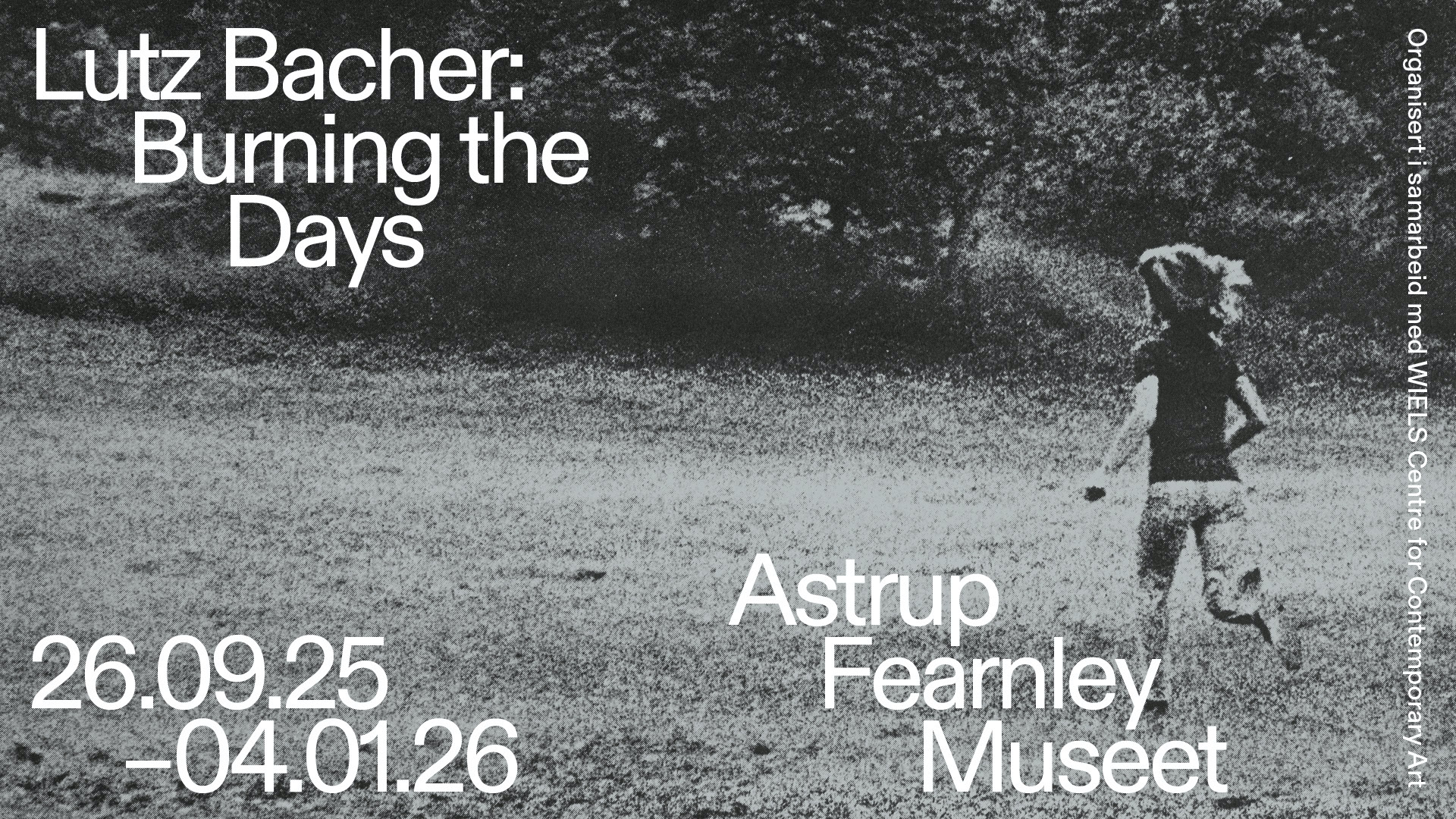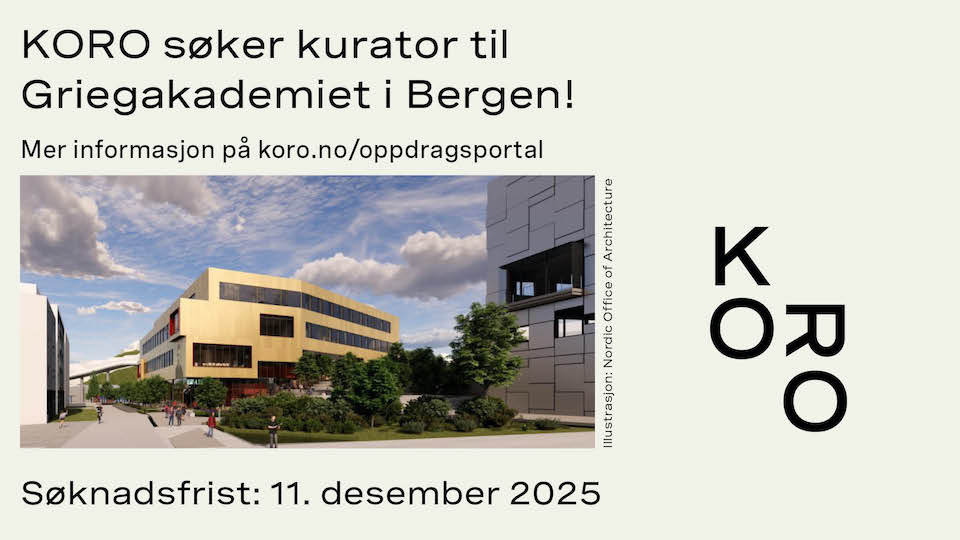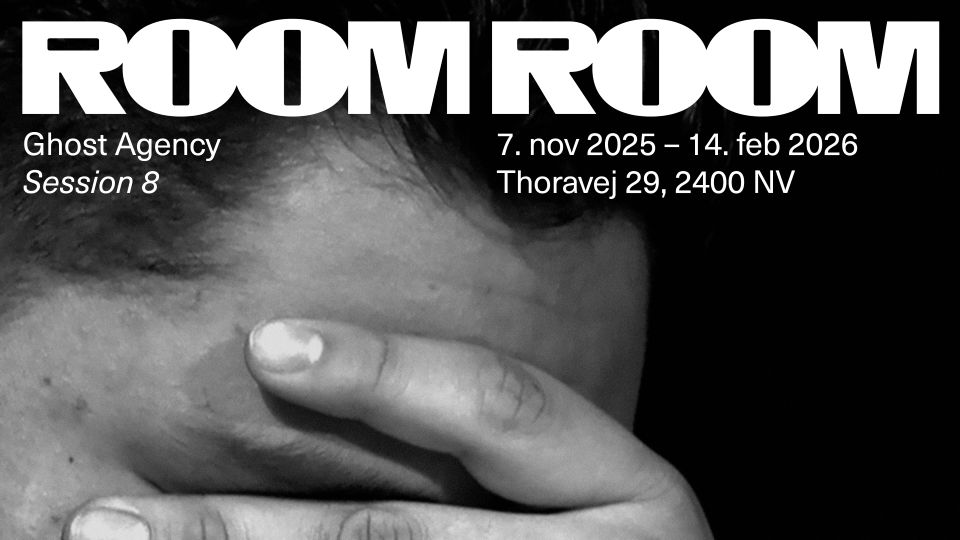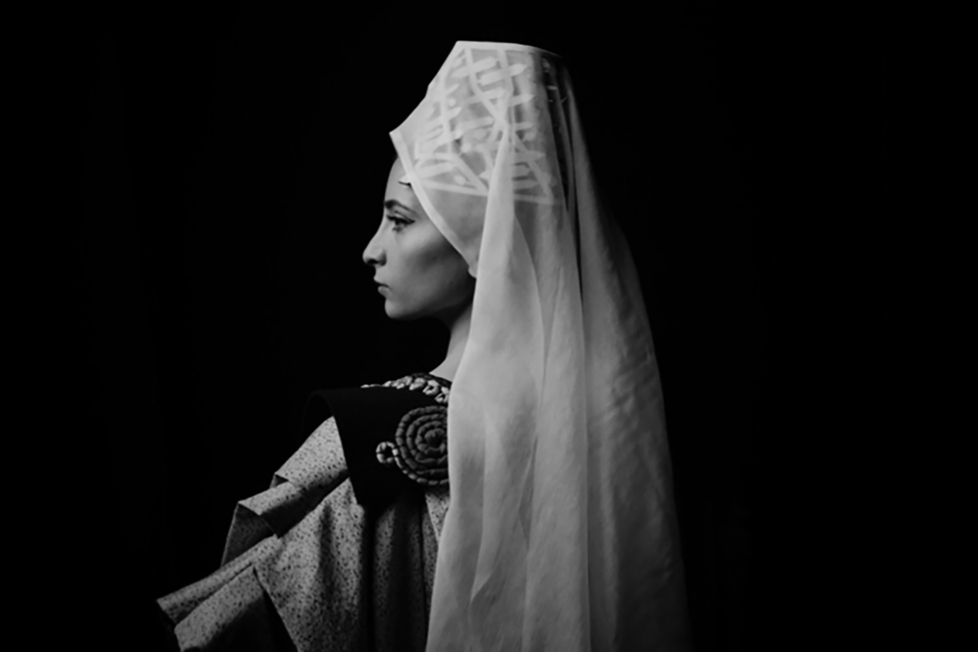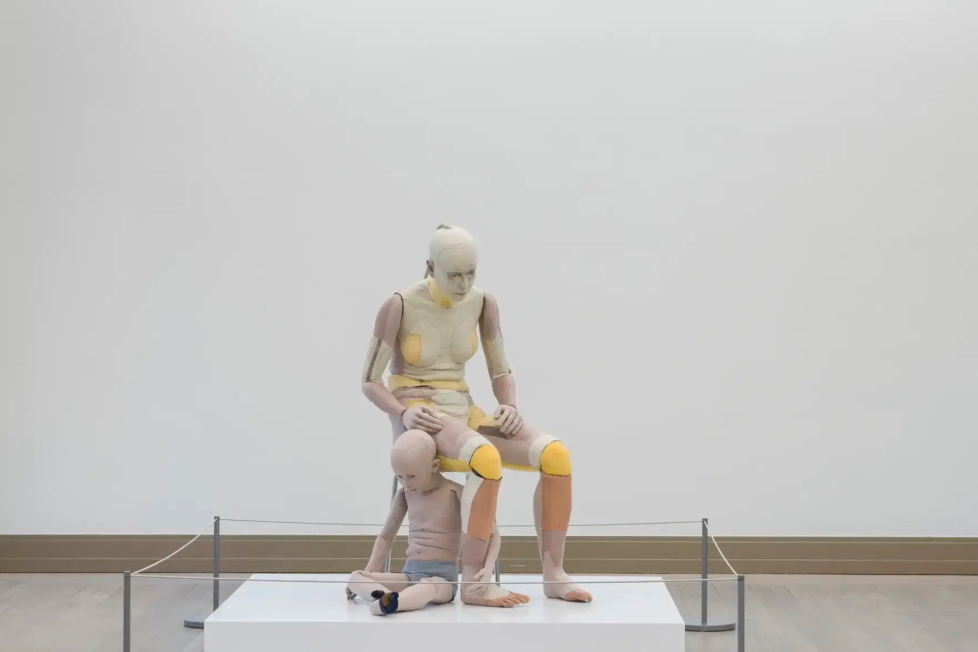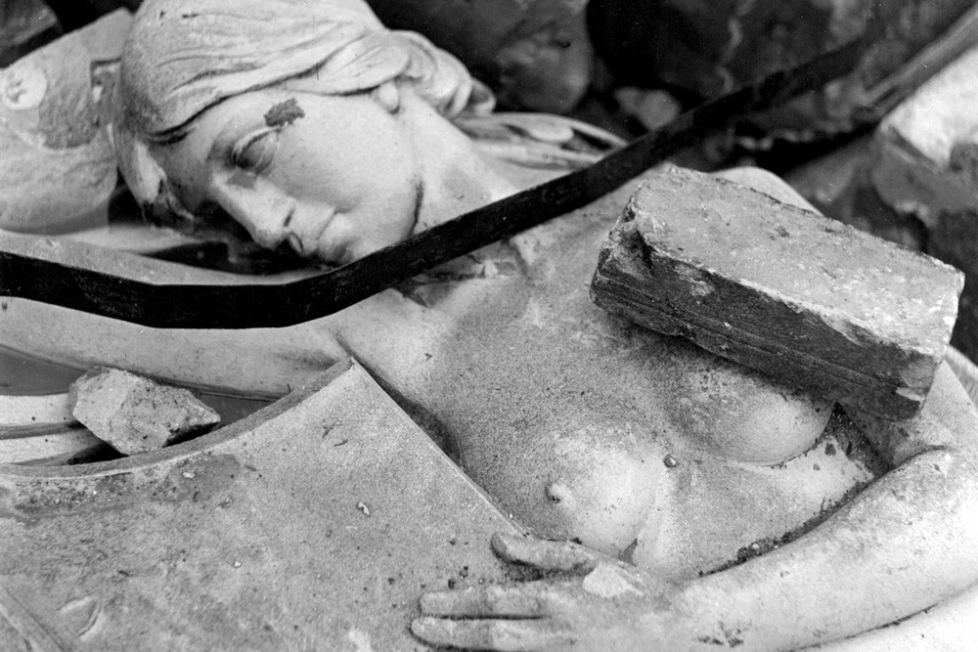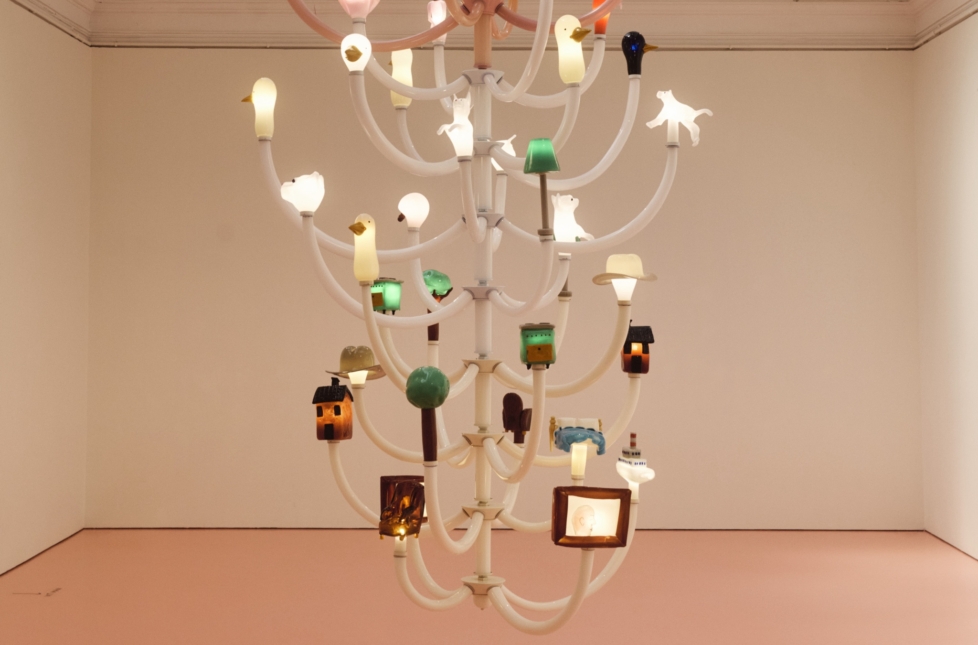
A tattoo artist wearing a pair of stylish sunglasses carves the word “familia” onto Brazilian artist Ventura Profana’s buttocks in the music video Oração (Prayer, 2021), on display at Tenthaus in Oslo. Shot at an abandoned industrial site, the video has a glitzy aesthetic that mimics R&B. Profana kneels and looks into the camera with a mixture of ecstasy and pain; a confident, vindictive smile plays on her lips. The message seems simple: The tattoo represents the social control exerted by institutions such as family, religion, and the entertainment industry on Profana’s body. But her desirous expression suggests that these oppressive efforts fail to function as intended. Submission nurtures masochistic pleasure and the possibility of personal liberation.
Curator Felipe P. Rena’s press release describes Ventura Profana as a visual artist, performer, composer, subversive gospel singer, and trans black woman. Half of the exhibition consists of digital collages that merge imagery from oil platforms, giant sports facilities, religious buildings, and ritual mass meetings into visually striking indictments of Brazil’s current populist politics. In O Diabo é Branco (The Devil is White) (2020), a group of conquistadors is about to land side by side with more contemporary soldiers and military vessels. In the middle of the picture is the Pope, his back turned on the observer. Another picture shows the president of Brazil, Jair Bolsonaro, being baptised in a blood-red river. On the floor under the collages are two old-fashioned TV sets framed by a large and stately flower arrangement and playing videos in blurry colours and black and white. This low-tech footage (accompanied by lo-fi drum based rhythms) shows tribal dances interspersed with excerpts from the artist’s own music videos as well as images of her body-diverse circle of friends. From the flowers we hear a rebellious, howling refrain: “Eu não vou morrer” (I don’t want to die).

The flower and video installation creates the impression of an organic and more authentic world that appears to have been suppressed by the imperialist, military-religious entertainment complex outlined in the collages. With her own body and voice, Profana embodies these repressed forms of being, even as her works demonstrate her own mastery of imperialist culture’s visual means of production. This performative identity is a collage of technologies, cultures, bodies, and plants. Profana is someone who knows how to infiltrate and subvert these means for her own purposes. This collage-like feel is somewhat reminiscent of the cyborg metaphor used by Donna Haraway in A Cyborg Manifesto (1985) to show how categories such as technology, machine, gender, body, and nature always already intertwine.
On the other hand, the technology featured in Profana’s exhibition is mainly portrayed as an oppressive tool. And Haraway’s concluding maxim, “I would rather be a cyborg than a goddess,” is a poor fit for the exhibition’s many religious references. Profana’s embodiment of the systems she criticises may have more in common with Paul B. Preciado’s Testo Junkie (2013). In this book, Preciado documents his own (decidedly homemade) gender-confirming testosterone regimen and seeks to map how biochemical technologies are prerequisites for what he describes as the “pharmacopornographic” phase of capitalism. According to Preciado, this ‘masturbatory economy’ is nurtured by “orgasmic force,” constantly producing new expressions of gender, body, and sexuality, as well as other commercial products, to keep the wheels turning. Physical ecstasy is also a driving force in Profana’s world, but in contrast to Preciado’s ideas, pleasure appears to be an outcome of mystical-sacral ritual suffering rather than of sexual stimuli.
The extraction and transformation of natural resources into the sports and entertainment architecture depicted in Profana’s collages parallels the disciplining and exploitation of non-conforming bodies and cultures by that same power apparatus. Profana does not seem to prescribe a resistance movement based on a naïve revival of anachronistic forms of collectivity – i.e. conservative religion – but instead advocates an unreserved and experimental erotic syncretism. In other words, desire, not obedience, is her primary driving force. Such a libidinal project runs the risk of being infiltrated and taken over by the technologies of the masturbatory economy. Presumably, Profana’s ‘religiosity’ serves to counteract such a subsumption by providing techniques for training desire to escape the grip of pornographic capital.

